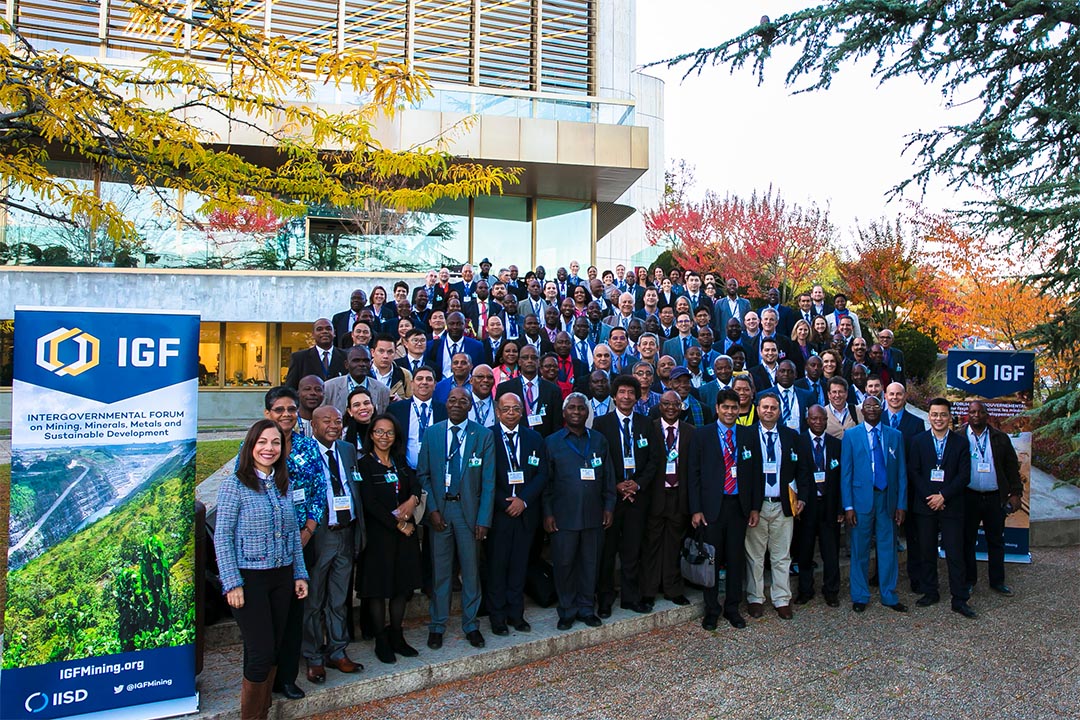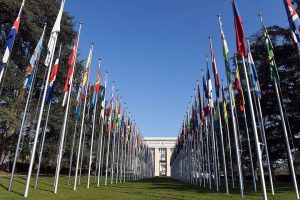20 October 2017: At their 13th Annual General Meeting (AGM) in Geneva, Switzerland, member countries of the Intergovernmental Forum on Mining, Minerals, Metals and Sustainable Development (IGF) shared national experiences and challenges under the theme of ‘managing artisanal and small-scale mining.’ While considering principles and safeguards, delegates highlighted the contribution of mining to job creation, economic expansion, the promotion of women in business, and to building infrastructure in developing countries. Participants also focused on “development minerals” such as sand, gravel and gypsum, the total production value for which exceeds that of precious metals and gemstones, and discussed how mining could contribute to the Sustainable Development Goals (SDGs).
Organized by the IGF Secretariat and hosted by the UN Conference on Trade and Development (UNCTAD), more than 400 participants registered for the 13th AGM, which took place from 17-19 October. Participants included government representatives of 65 countries and representatives from international organizations, industry, and civil society. The IGF currently has 62 member countries.
Delegates and partners discussed many issues related to artisanal and small-scale mining (ASM), including formalization and management strategies, such as license areas and ASM zones; interactions between large-scale mining (LSM) and ASM; development minerals and the SDGs; multi-stakeholder engagement to develop a common vision for mining; and women in ASM. They also considered voluntary principles on security and human rights, voluntary sustainability initiatives for the mining sector, mine closure and post-mining transition, environmental impact assessments (EIA), local content policies, good governance for biodiversity in the mining sector, and financial benefit optimization. Several country case studies and an overview of global and regional trends in ASM were presented.
The Minamata Secretariat held a session on managing mercury use in the artisanal and small-scale gold mining (ASGM) sector, which is the leading source of anthropogenic mercury emissions worldwide. Sheila Logan, Minamata Convention Secretariat, highlighted the requirement for parties to determine if ASGM in their territory is “more than insignificant,” in which case a national action plan is required. She noted that health surveillance, training of healthcare workers and awareness raising about mercury poisoning are important elements of a multi-stakeholder strategy.
Romain Perez, UNCTAD, concluded that regulation and formalization are important to transforming the ASM “resource curse” into a “blessing.”
At the closing plenary, Romain Perez, UNCTAD, highlighted linkages between ASM and the SDGs. He outlined the positive impacts of ASM, such as creating jobs, improving household income, and reducing migration to urban areas, while also noting the negative associations of ASM with social unrest, poor sanitation and health problems. He concluded that regulation and formalization are important to transforming the ASM “resource curse” into a “blessing.”
IGF members elected a new Executive Committee for 2017-2019, chaired by Alexander Medina (Dominican Republic). They expressed appreciation to outgoing Chair Glenn Gemerts (Suriname) for his contributions.
Prior to the AGM, over 300 government delegates met at an intergovernmental workshop on 16 October, the largest gathering of member countries to take place in the history of the IGF. At the intergovernmental workshop, delegates identified national and regional priorities, including the need for accessible, robust geological information; building technical, infrastructure and human resource capacity; and managing environmental impacts. In view of community resistance to mining expansion, they noted the challenges of improving countries’ fiscal regimes, maintaining respect of land rights, developing a common vision for mining that is shared by all stakeholders, and requiring “local content” so that large-scale mining operations procure goods and services locally, wherever possible.
Several countries shared their experiences in reviewing and reforming mining legislation, highlighting the need to optimize the financial benefits of mining to the state, address social conflicts, combat illegal mining, and improve the overall governance of the mining sector.
Following the AGM, a one-day technical workshop on the topic of ‘Base Erosion and Profit Shifting’ (BEPS) convened on 20 October, organized by the IGF Secretariat. The workshop examined ways that governments can address mining corporations’ tax avoidance strategies, and highlighted preparations toward a two-year IGF-OECD BEPS in Mining Program, which aims to assist governments to develop country capacity for addressing the issue. [Agenda of 13th AGM] [IGF Website] [IISD RS Report on 13th AGM]

